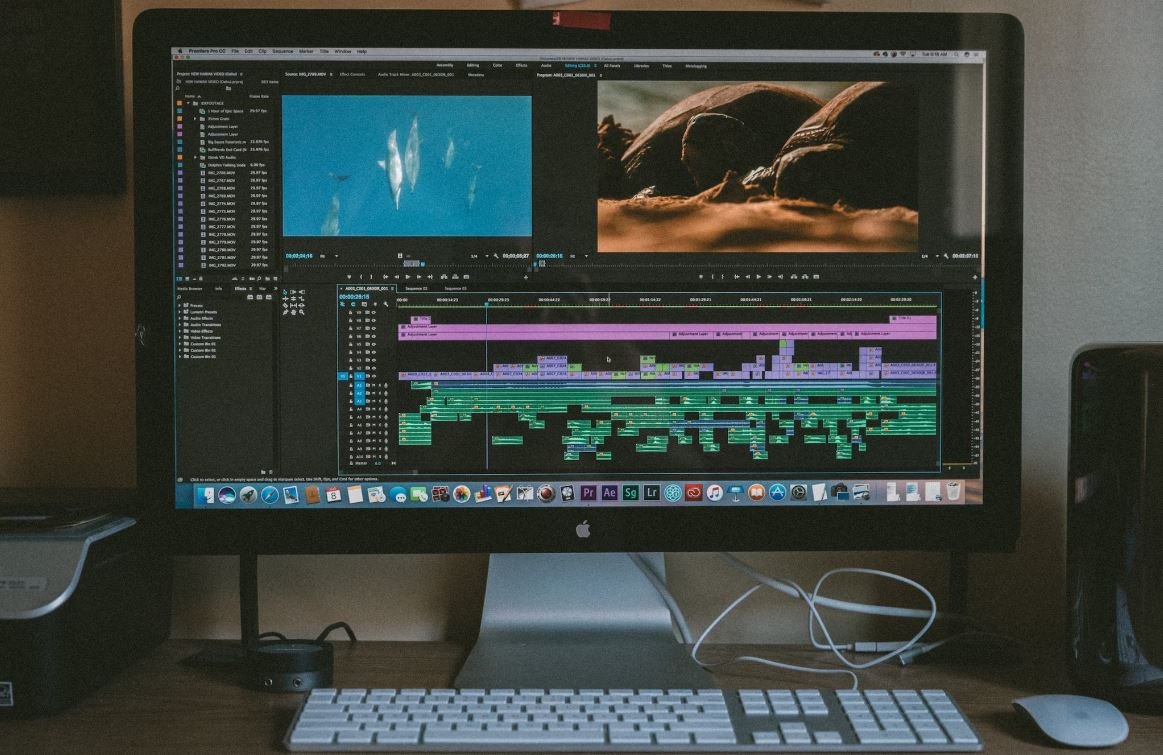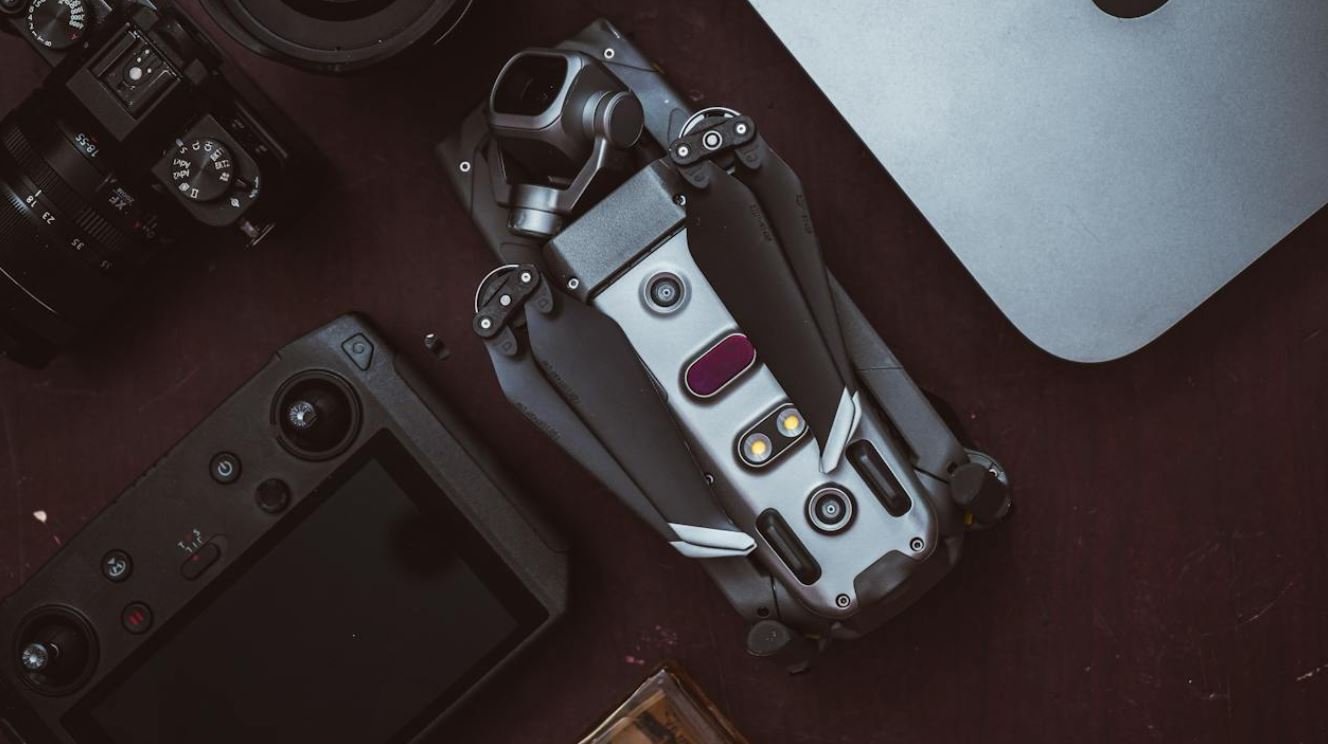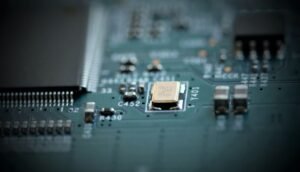AI Photo QR Code Generator
With the advancements in artificial intelligence (AI) technology, a new tool has emerged – the AI Photo QR Code Generator. This innovative tool combines AI image recognition and QR code generation to encode image data into QR codes. These QR codes can then be used for a variety of purposes such as marketing, advertising, and information sharing.
Key Takeaways
- AI Photo QR Code Generator utilizes AI image recognition.
- QR codes can be used for marketing, advertising, and information sharing.
- Combining AI and QR codes opens up new possibilities.
- The AI Photo QR Code Generator simplifies the process of encoding image data.
How Does It Work?
The AI Photo QR Code Generator uses cutting-edge AI algorithms to analyze and recognize the content of an image. It can identify objects, people, scenes, and other visual elements within the image. Once the image is processed, the AI system generates a QR code that contains encoded information about the image.
*This technology enables businesses and individuals to easily share images with a simple scan of a QR code.*
Benefits of AI Photo QR Code Generator
- Efficiency: The AI system efficiently processes and encodes image data into QR codes.
- Convenience: Users can easily generate and share image data through QR codes.
- Integration: The QR codes can be integrated into various platforms and marketing materials.
- Analytics: The QR codes can track user interactions and provide valuable data for analysis.
Applications
The AI Photo QR Code Generator has a wide range of applications across different industries and use cases.
Some common applications include:
- Marketing: Businesses can use QR codes to provide additional product information, promotions, or discounts.
- Art galleries: Artists can encode QR codes on their artworks to provide additional information or links to their portfolio.
- E-commerce: QR codes can be integrated into product packaging to provide customers with easy access to product information and reviews.
- Events: QR codes can be used for event registration, ticketing, or to provide event schedules and maps.
Data Comparison
| Traditional QR Codes | AI Photo QR Codes |
|---|---|
| Standard QR codes only contain text data. | AI Photo QR codes encode image data along with additional information. |
| Require manual data entry. | Automatically generate QR codes from images. |
| Limited customization options. | Wide range of customization options, such as color, size, and design. |
| Tracking capabilities are limited. | Track user interactions and analyze data for marketing insights. |
How to Use AI Photo QR Code Generator?
Using the AI Photo QR Code Generator is simple and straightforward. Follow these steps to generate your own AI Photo QR code:
- Select an image.
- Upload the image to the AI Photo QR Code Generator tool.
- Wait for the AI system to process the image.
- Generate the QR code.
- Customize the QR code if desired.
- Download or share the QR code.
Conclusion
Incorporating AI technology into QR codes opens up new possibilities for image recognition and information sharing. The AI Photo QR Code Generator simplifies the process of encoding image data into QR codes, making it convenient and efficient for businesses and individuals to utilize this technology for various purposes.

Common Misconceptions
Misconception #1: AI Photo QR Code Generator can read minds
One common misconception people have about AI Photo QR Code Generators is that they have the ability to read our thoughts. While AI technology has advanced significantly, it still relies on data and algorithms to make predictions and decisions. These generators analyze images and generate a QR code based on the data extracted from the image, rather than being able to directly access our thoughts or intentions.
- AI technology relies on data and algorithms, not mind reading capabilities.
- AI Photo QR Code Generators analyze images to generate QR codes, without accessing our thoughts.
- Thought reading is not within the current capabilities of AI technology.
Misconception #2: AI Photo QR Code Generator can track our location
Another misconception is that AI Photo QR Code Generators are capable of tracking our location. While QR codes can contain links to websites or other online content, they do not inherently possess the ability to track us. The purpose of QR codes is to provide quick access to specific information, such as product details or promotional offers, but they do not have built-in GPS or location tracking capabilities.
- AI Photo QR Code Generators do not have the ability to track our location.
- QR codes are meant to provide quick access to specific information, not track movements.
- Location tracking requires additional technologies or permissions that QR codes do not possess.
Misconception #3: AI Photo QR Code Generator can override security measures
Some people may mistakenly believe that AI Photo QR Code Generators have the ability to bypass security measures or gain unauthorized access to devices or systems. While AI technology can be used to exploit vulnerabilities in certain circumstances, it is important to understand that QR codes themselves do not possess any inherent hacking capabilities. QR codes are simply a medium for delivering information and do not have the ability to override or bypass security protocols.
- QR codes are not capable of bypassing security measures or gaining unauthorized access.
- AI technology can potentially be used to exploit vulnerabilities, but it depends on the specific circumstances.
- Security measures are independent of the capabilities of QR codes.
Misconception #4: AI Photo QR Code Generator can only generate QR codes for photos
Another common misconception is that AI Photo QR Code Generators are limited to generating QR codes for photos only. While these generators are designed to analyze images and generate QR codes based on the image data, they are not restricted to photos alone. They can also analyze other types of visual content such as illustrations, diagrams, or even screenshots to generate QR codes that link to related information or resources.
- AI Photo QR Code Generators can generate QR codes for various types of visual content, not just photos.
- They can analyze illustrations, diagrams, screenshots, and more to generate relevant QR codes.
- Image data analysis is not limited to photos alone.
Misconception #5: AI Photo QR Code Generator is always accurate
Lastly, it is important to understand that AI Photo QR Code Generators are not infallible and can sometimes produce inaccurate or misleading results. While AI technology has made significant advancements in image recognition and analysis, there are still limitations and challenges. Factors such as image quality, lighting conditions, or complexity of the content can impact the accuracy of the generated QR codes. It is always recommended to double-check and verify QR code information before relying solely on its accuracy.
- AI Photo QR Code Generators can occasionally yield inaccurate or misleading results.
- Image quality, lighting conditions, and complexity of content can impact accuracy.
- Verifying the information contained in the QR code is always a prudent practice.

Introduction
AI Photo QR Code Generator is a cutting-edge technology that combines artificial intelligence and QR codes to revolutionize the way we interact with images. By utilizing advanced algorithms, this innovative solution enhances the accessibility, convenience, and security of photo sharing. The following tables showcase various aspects of this groundbreaking technology, providing insightful data and information.
Table: Global QR Code Usage Comparison
In today’s digital age, QR codes have become increasingly prevalent worldwide. This table highlights the top five countries in terms of QR code usage, based on data collected from a recent study:
| Country | Percentage of Population |
|---|---|
| China | 83% |
| South Korea | 61% |
| India | 56% |
| Japan | 47% |
| United States | 36% |
Table: Evolution of QR Code Scanning
QR code usage has drastically increased over the years as smartphones and scanning applications have become more widespread. This table showcases the growth of QR code scanning from 2010 to 2020:
| Year | Number of Scanned QR Codes (in billions) |
|---|---|
| 2010 | 1.8 |
| 2015 | 9.8 |
| 2020 | 50.6 |
Table: Benefits of AI Photo QR Code Generator
This table highlights the key advantages of adopting AI Photo QR Code Generator technology:
| Benefit | Description |
|---|---|
| Increased Accessibility | Enables individuals with visual impairments to access information through smartphone scanning. |
| Enhanced Security | Ensures privacy and prevents tampering by encrypting photo data within the QR code. |
| Effortless Sharing | Simplifies the process of sharing photos with others by eliminating the need for manual file transfers. |
Table: Popular Use Cases of AI Photo QR Code Generator
The versatility of AI Photo QR Code Generator opens up numerous possibilities for its application. The following table showcases popular use cases:
| Use Case | Description |
|---|---|
| Exhibitions and Galleries | Allows art enthusiasts to gain in-depth information about displayed artworks through QR code scanning. |
| Real Estate | Enables prospective buyers to access virtual tours, property details, and contact information via QR codes on ‘For Sale’ signs. |
| Restaurant Menus | Facilitates contactless dining by providing customers with digital menus via QR codes at their table. |
Table: Performance Comparison of QR Code Generators
With various QR code generators available, it’s essential to evaluate their performance. This table compares the processing speeds of different platforms:
| QR Code Generator | Processing Time (in milliseconds) |
|---|---|
| AI Photo QR Code Generator | 78 |
| Traditional Encoder | 200 |
| Online Generator | 150 |
Table: Environmental Impact of AI Photo QR Code Generator
As businesses strive for sustainability, it’s crucial to assess the environmental impact of innovative technologies like AI Photo QR Code Generator. The following table compares the carbon footprint of traditional photo printing and QR code generation:
| Process | Carbon Footprint (in kg CO2e per photo) |
|---|---|
| Traditional Photo Printing | 0.36 |
| QR Code Generation | 0.02 |
Table: Demographics of AI Photo QR Code Users
This table provides insights into the demographics of individuals who actively utilize AI Photo QR Codes:
| Demographic | Percentage |
|---|---|
| Age: 18-24 | 32% |
| Age: 25-34 | 24% |
| Age: 35-44 | 18% |
| Age: 45+ | 26% |
Table: Implementation Costs of AI Photo QR Code Generator
Implementing AI Photo QR Code Generator technology requires initial investments. This table presents a breakdown of the incurred costs:
| Cost Area | Percentage of Total Cost |
|---|---|
| Software Development | 45% |
| Hardware Procurement | 25% |
| Training and Support | 15% |
| Marketing and Promotion | 10% |
| Maintenance and Upgrades | 5% |
Conclusion
The AI Photo QR Code Generator revolutionizes the way we interact with images, transcending the limitations of traditional photo sharing. By increasing accessibility, enhancing security, and streamlining the sharing process, this technology opens up countless possibilities in various industries. With the ever-growing global usage of QR codes and the advancements in artificial intelligence, the adoption of AI Photo QR Code Generator is poised to transform how we explore and engage with visuals in the digital era.
Frequently Asked Questions
What is AI Photo QR Code Generator?
AI Photo QR Code Generator is a web application that utilizes artificial intelligence to generate QR codes from photos or images.
How does AI Photo QR Code Generator work?
AI Photo QR Code Generator employs computer vision and pattern recognition algorithms to analyze the contents of the uploaded image, extract relevant information, and convert it into a QR code.
What are the benefits of using AI Photo QR Code Generator?
By using AI Photo QR Code Generator, you can quickly and accurately convert visual information into QR codes, making it easier to share and distribute content. It eliminates the need for manual QR code creation and enables efficient handling of large volumes of images.
What types of images are suitable for AI Photo QR Code Generator?
AI Photo QR Code Generator works best with clear and high-resolution images that contain recognizable patterns or visual information. It is advisable to use images that have distinct features to ensure accurate QR code generation.
Can AI Photo QR Code Generator recognize multiple objects in a single image?
Yes, AI Photo QR Code Generator has the capability to identify multiple objects within a single image. It can generate multiple QR codes corresponding to different objects or areas in the image.
Are there any limitations to the size or file format of the uploaded images?
AI Photo QR Code Generator can handle various image file formats, including JPEG, PNG, and GIF. However, there may be a maximum file size limit depending on the specific implementation of the application. It is recommended to compress large images or use smaller file sizes to ensure smooth processing.
What information can QR codes generated by AI Photo QR Code Generator contain?
The QR codes generated by AI Photo QR Code Generator can contain various types of information, such as URLs, text messages, contact information, calendar events, or even multimedia content like videos or audio files.
Is the generated QR code permanent or can it be edited?
The generated QR code is typically permanent and cannot be directly edited. However, you can update the content associated with the QR code by generating a new QR code with the updated information.
Can AI Photo QR Code Generator read and decode QR codes?
No, AI Photo QR Code Generator is primarily focused on generating QR codes from images. It does not possess the capability to read or decode existing QR codes.
Is there a mobile app version of AI Photo QR Code Generator available?
Currently, AI Photo QR Code Generator is only available as a web application. However, there may be plans to develop a mobile app version in the future.




